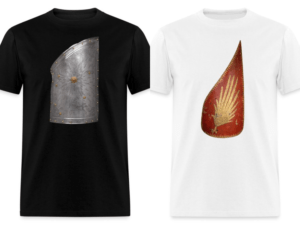Bethlen defeats the usurper Homonnai-Drugeth at Dés, 1616
It happened on the 20th of November 1616 the army of the Transylvanian prince Bethlen Gábor defeated the usurper Homonnai-Drugeth György at Dés… Please note that I am using the Oriental name order for Hungarians, where the surnames come first. As for Bethlen Gábor, you can read more about his life here:

The Hajdú soldiers, hired by the usurper Homonnai-Drugeth György in 1615-16, invaded the region of the Partium (a large area between Transylvania and Hungary), but they were beaten back at Konyárd in June 1616 by the army of Rhédey, the chief captain of Várad, the brother-in-law of Prince Bethlen.

After this defeat, Homonnai did not attack for a while but continued to plot against Prince Bethlen. Unfortunately, Bethlen had previously promised to cede Lippa Castle to the Ottomans in exchange for their help in taking the throne of Transylvania. After defeating Homonnai at Konyárd, Bethlen was forced to give Lippa to the Turks. This made the Hajdú soldiers very angry and they began to gossip that the castles of Borosjenő and Várad (Oradea) would also be surrendered to the Turks.

As a result, the Hajdú people in the Hajdú settlements and towns of Bihar and Szabolcs counties felt threatened. The fear of the Hajdú inhabitants was exacerbated by the letters of Homonnai, who spread his propaganda among them. Hearing of this, Prince Bethlen appointed Simoni György to guard the western borders of Transylvania. Simoni, like Homonnai, began to recruit Hajdú soldiers under his banner. Simoni tried to recruit his Hajdús from the Kingdom of Hungary, thus taking away Homonnai’s resources.

Knowing the savage reputation of the Hajdú soldiers, Rhédey, Prince Bethlen’s brother-in-law, was instructed to summon the leaders of the Hajdús, arrest them if necessary, and force them to swear fealty to him, slaughtering those who refused.
There were many Hajdú soldiers who had sided with Homonnai-Drugeth. One of them, Lónyai András, even wanted to assassinate Simoni György just to please Homonnai.
There were many Hajdú soldiers who had sided with Homonnai-Drugeth. One of them, Lónyai András, even wanted to assassinate Simoni György just to please Homonnai.

Meanwhile, Homonnai’s other man, Captain Gombos András, was waiting for his chance to release his Hajdú soldiers and attack the Szilágyság region of Transylvania. This he did at the end of October with 500 men, trying to recruit more as he marched on.
Simoni and his 200 soldiers came out to meet him, but Gombos hid his men in a forest, so the attackers returned to a village called Tarcsa. It was there that Gombos’ Hajdús attacked them. They found out which house Simoni was in and surrounded it.
Simoni and his 200 soldiers came out to meet him, but Gombos hid his men in a forest, so the attackers returned to a village called Tarcsa. It was there that Gombos’ Hajdús attacked them. They found out which house Simoni was in and surrounded it.

Sources said: ” Simoni György broke out of the house twice and fought hard with the villains. The attackers were persistent and Simoni’s men did not come to help their captain. Simoni György defended himself in the house, but the villains started shooting at him and a bullet fired from the window hit him. He was wounded and captured, then taken to Szatmár and handed over to Dóczy András”.

In Hungarian: „Simoni György, a házból kétszer kicsapott és erősen megharczolt a latrokkal. Neki felesedvén a sok lator és a maga hada is Simoni Györgyöt meg nem segítvén, a házban a sok lator előtt Simoni György béálla; de az ablakokról reá lövöldözvén, lövéssel lábáról leejték, azután megkötözték és sebben kötözve Szakmárba vivék Dóczy Andrásnak.”
Soon, the wounded man died in captivity.
Gombos then moved to the Dengeleg area and recruited the local Hajdú captains. By the beginning of November, he had about 800 men. Among them were some high lords of Transylvania, such as Sarmasági Zsigmond and his stepson, Jósika Zsigmond, the husband of Báthory Anna. They called on the Transylvanian estates to revolt against Prince Bethlen.

In response, the prince summoned the Transylvanian estates to join his army in Kolozsvár (Cluj). Meanwhile, his relative, Rhédey, waited for more Hajdús to come to him in Várad, but none appeared. It was then that the Pasha of Buda, Ali, threatened the attacking Hajdús, saying that if they did not return home, he would ride out against them with an army. We know that Bethlen had very good relations with the Turks, as their army placed him on the throne of Transylvania.

Interestingly, Thurzó György, the Palatine of the Kingdom of Hungary, the second most important man after the Habsburg King of Hungary, did not support the attackers either. On the contrary, he ordered Forgách Zsigmond, chief captain of Upper Hungary, to attack Gombos’ army. Note that he helped Bethlen’s cause, even though the Habsburg king was no friend of Bethlen’s.

Finally, the battle between Gombos and the Transylvanian forces, reinforced by Székely troops, took place on 20 November at Dés.
The Transylvanians were led by Kamuthy Balázs, who knew all the moves of the Hajdús. Knowing their tactics well, he used their own military trick, the so-called “Hajdú trap and hit”, against them and defeated them. He hid his infantry in a mill near Dés and set out with his horsemen against Gombos’ army.
The Transylvanians were led by Kamuthy Balázs, who knew all the moves of the Hajdús. Knowing their tactics well, he used their own military trick, the so-called “Hajdú trap and hit”, against them and defeated them. He hid his infantry in a mill near Dés and set out with his horsemen against Gombos’ army.
When the two armies met, they began a conversation like this:
“Brave men! Leave the prince’s side and you will have a better life here”.
“No, good brave soldiers, that is impossible. We have sworn allegiance to the Prince. In fact, we are quite surprised that you should turn against our Prince, even though he has done you no harm. Besides, we are all Hungarians. Why don’t you abandon your evil intentions and join our prince, you will have a better life with us”.
“Brave men! Leave the prince’s side and you will have a better life here”.
“No, good brave soldiers, that is impossible. We have sworn allegiance to the Prince. In fact, we are quite surprised that you should turn against our Prince, even though he has done you no harm. Besides, we are all Hungarians. Why don’t you abandon your evil intentions and join our prince, you will have a better life with us”.

At this, the riders of Bethlen turned tail but looked back and said:
“May God be with you, good and brave men! Go back in peace, you too, why should we kill each other? Look, we are all Hungarians. You too should go back and let us live in peace with each other.
“May God be with you, good and brave men! Go back in peace, you too, why should we kill each other? Look, we are all Hungarians. You too should go back and let us live in peace with each other.
The men of Gombos thought their enemy had been frightened, so their leader called out in a loud voice:
“After them, now that we have the upper hand, we will have a nice gain and profit!”
They set off after the Transylvanians, “they began to shoot, but the Prince’s men rode away all the faster, through the market of the city of Dés”.
“After them, now that we have the upper hand, we will have a nice gain and profit!”
They set off after the Transylvanians, “they began to shoot, but the Prince’s men rode away all the faster, through the market of the city of Dés”.

Finally, the battle between Gombos and the Transylvanian troops was fought at Dés on 20 November 1616. Kamuthy’s men trapped them in a narrow ravine “between the hill and the water”, and then turned on them. The infantrymen jumped out from the shelter of the mill and attacked them from behind. “Both from the front and the rear they were shot at in the ravine and fell in great numbers.”

Most of the attackers fell or were captured. Gombos fled, only managing to escape with his remaining 150 riders. After this incident, there were no more internal attacks against the prince’s rule, so three years later Transylvania was able to join the Thirty Years’ War, with the majority of the prince’s soldiers being Hajdús. You can read more about the Hajdú warriors here:
(Source: Szibler Gábor)
Here is the Hungarian text of the conversation between the Hajdú and the Székely Hungarians before the battle:
Amikor a két sereg találkozott, beszédbe elegyedtek:
– „Vitézek! álljatok hozzánk a fejedelem mellől és jobban leszen dolgotok.”
– „Semmiképpen nem lehet, jó vitézek, mert hitesek vagyunk fejedelmünknek! Inkább azon csudálkozunk, hogy a fejedelmünk senkinek sem vétvén és magyar is levén, kegyelmetek ellene törekedik, inkább hagyjon békét kegyelmetek az ilyen gonosz szándéknak, álljon kegyelmetek is fejedelmünk mellé, jobb lészen kegyelmeteknek.”
Bethlen lovasai ezután visszafordultak, de visszanézve még ezt mondták a hajdúknak:
– „Isten hozzátok, jó vitézek! Menjetek vissza békével ti is, mit fogyatjuk egymást? Hiszen mindnyájan magyarok vagyunk. Jobb ha kegyelmetek is visszamegyen és békességben élünk egymással.”
Gombosék úgy gondolták, hogy az ellenfeleik megijedtek tőlük, a vezér elkiáltotta magát:
– „Jertek utánok, most vagyon immár módunk a dologban, majd szép nyereséggel járunk!”
Dear Readers, I can only make this content available through small donations or by selling my books or T-shirts.
If you like my writings, please feel free to support me with a coffee here:
You can check out my books on Amazon or Draft2Digital, they are available in hardcover, paperback, or ebook:
https://www.amazon.com/dp/198020490X
or at https://books2read.com/b/boYd81
 “33 Castles, Battles, Legends” (Paperback)
“33 Castles, Battles, Legends” (Paperback)

My work can also be followed and supported on Patreon: Become a Patron!http://Become a Patron!


https://hungarianottomanwars.myspreadshop.com/

https://hungarianottomanwars.myspreadshop.com/all


